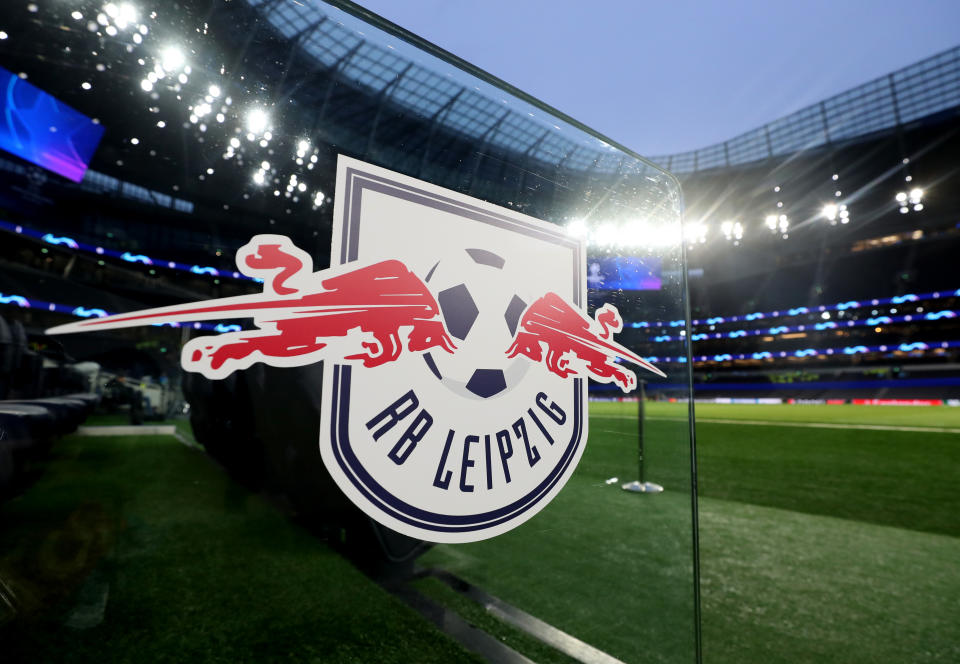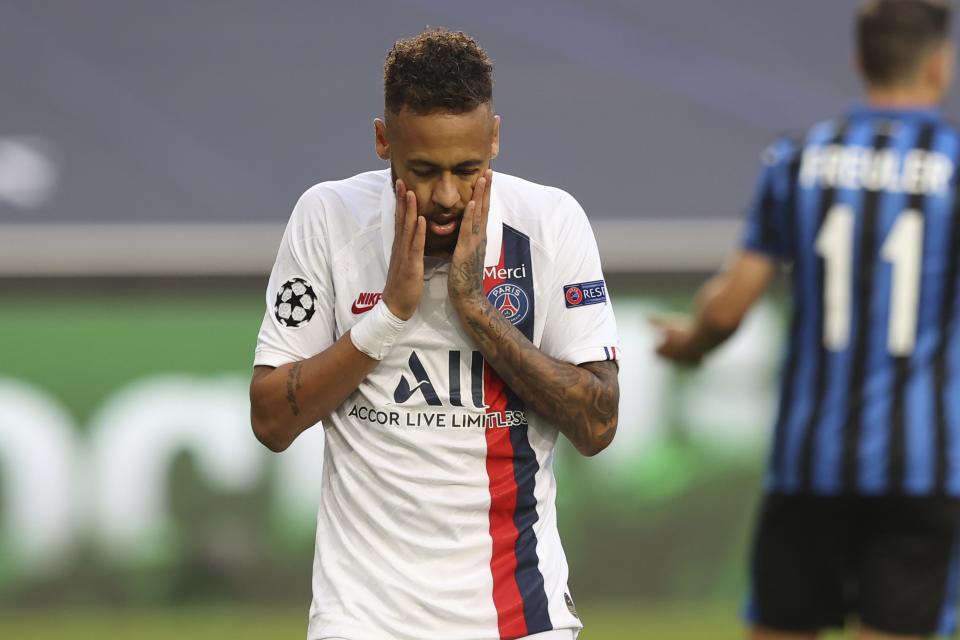PSG vs. RB Leipzig: Which team do you want to lose in the Champions League semifinal more?
It probably hasn’t escaped your attention that this season has been very strange. It is, therefore, appropriate that we have ended up with a curious Champions League final four.
In a European campaign defined by the coronavirus pandemic pause and a single-elimination denouement in Lisbon, we have arrived at the most diverse range of semifinalists in decades. None of the finalists in the last six years of the competition are still in the competition, and it’s the first time since the 1992 Champions League rebrand that the semifinals have not featured a team from England, Spain or Italy.
Tournament favorites Bayern Munich — who didn’t even appear to be playing at their best during their 8-2 humiliation of Barcelona — are the only “heritage” team who may be expected to attend the final stages of Europe’s premier domestic competition. Lyon, who finished seventh in Ligue 1 this season, were able to get the better of moneyed powerhouse Manchester City to secure their second-ever semifinal berth.
Paris Saint-Germain, meanwhile, are in the semifinals for the first time since 1995, when star striker George Weah led them deep in the competition. The current President of Liberia earned the Ballon d’Or for his efforts in that campaign. At the time, Neymar was 3 years old.
And the final four is rounded out by RB Leipzig, who are making their debut at this stage in the competition, having being established as a club with taurine-fueled propulsion in 2009.
With such a broad and unexpected range of teams, competing in an urgent format, this season’s Champions League group stage is a treat for neutral fans.
But those without a dog in the fight have a difficult decision to make when it comes to Tuesday’s semifinal between Paris Saint-Germain and RB Leipzig.
The reason? It’s hard to know who to hate more.
Has there ever been a Champions League knockout game between two teams who are so thoroughly maligned by the soccer community?

Let’s start with the case against RB Leipzig. On the surface, the East German side may hold appeal for the American fan: They are funded by Red Bull, which is familiar to MLS supporters for rebranding the New York/New Jersey MetroStars team in 2006. They play an exciting brand of soccer that isn’t built around megastars, and are guided by 33-year-old coach Julian Nagelsmann. They’re also a touchstone club for USMNT fans thanks to midfielder Tyler Adams, who scored the winning goal in the quarterfinal.
RB Leipzig are, however, by far the most hated team in Germany. For many, they represent the antithesis of what a club should be, and a damning encapsulation of corporate “modern soccer.”
Not only were they started by a multinational company — which is looked down upon in the European game, as teams are traditionally built by local communities — but they purchased the rights from fifth-tier side SSV Markranstadt to obtain their league license. Yes, they bought a place in the German league while putting another club out of existence.
RB Leipzig’s name technically stands for “RassenBallsport Leipzig,” but it is clear that they exist, at least in part, to market an energy drink.
A Borussia Dortmund fan who participated in a mass boycott of an RB Leipzig match in 2016 explained why many are irked by Leipzig’s origin story. “Dortmund makes money, but we do it in order to play football,” the fan said. “Leipzig plays football in order to sell a product and a lifestyle. That’s the difference.”
This is such a sticking point in the German soccer community that “11Freunde,” the biggest soccer magazine in Germany, is refusing to cover Leipzig’s Champions League run.
The East Germans are also heavily criticized for the manner in which they have flouted German soccer rules that are intended to keep clubs democratically controlled by their members. The “50+1 rule” ensures that fans own a majority of the stakes in teams, with very few exceptions. RB Leipzig have bent the rules to restrict their membership to less than 20 people, most of whom are Red Bull executives.
German fans make no secret of their hatred for the side that’s ascended from the fifth tier to the semifinals of the Champions League in a little over a decade. In addition to boycotts, Leipzig are regularly treated to unwelcoming banners on away trips, and their fans are referred to as “customers.” Union Berlin held a silent 15-minute protest in their first-ever Bundesliga match in August 2019, as Leipzig were their visitors. In 2016, Dynamo Dresden fans threw a severed bull’s head onto the field to greet their energy drink-funded guests.
The open disdain for Leipzig is clear on a domestic level, but it is probably eclipsed by PSG on an international level. Like Leipzig, the Parisians are a young club, having only started in 1970. The Ligue 1 side enjoyed success in the 1990s, but were elevated to the very top tier of the game when they were purchased by Qatar’s sovereign wealth fund in 2011.

PSG have spent over a billion Euros since their takeover, and have become virtually unassailable in their domestic league, winning seven of the last eight Ligue 1 titles. The malice directed at them, however, isn’t due to the amount of money they spend. It’s the source of the money, and what it represents.
The club is fully backed by a Gulf state that is frequently criticized for denouncing basic human rights. PSG stands accused of being a tool of political “soft power,” whereby Qatar aims to increase its appeal and standing in the western world via its megastar-laden soccer team.
Of course, the Parisians are not the only team to benefit from state backing: Manchester City enjoy a similar arrangement with Abu Dhabi. And they are far from the only team in the world to have risen to power thanks to finances obtained from potentially dubious and allegedly unethical sources. Isn’t that right, Chelsea fans?
For many, however, PSG’s combination of problematic funding, a lack of history and a healthy dose of hubris form a particularly unedifying combination.
Thus, Tuesday’s Champions League semifinal is the Battle of the Maligned Monoliths.
It is not Paris against Leipzig; it is Political Influence against Rampant Commercialism.
It may be possible for the neutral fan to appreciate the quality of the product on the field, but it will be more challenging to pick a side to back.
But whether we like it or not, the game and its machinations are changing before our eyes. And one of these teams is heading to the Champions League final.
More from Yahoo Sports:

 Yahoo Sports
Yahoo Sports 
